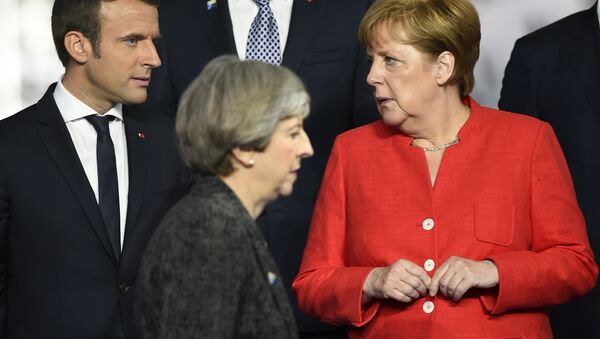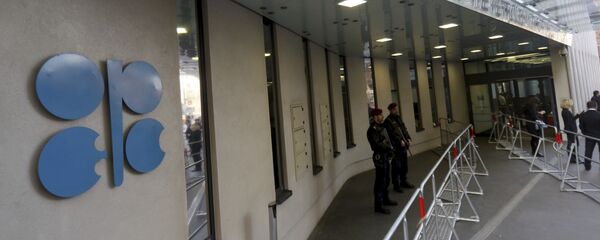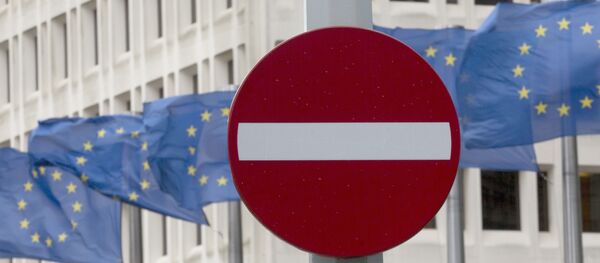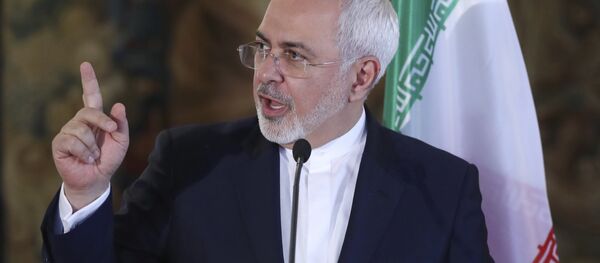The future of the Joint Comprehensive Plan of Action (JCPOA) is hanging in the balance, as both the US and the Islamic Republic of Iran (IRI) have given the EU ultimatums.
While Donald Trump's sanctions targeting foreign businesses are due to come into force on August 6, 2018, Ayatollah Ali Khamenei has set conditions for Iran to remain in the agreement with a 60-day deadline.
The list of Iranian conditions, announced by Khamenei in his May 23 government address contains seven points: First, according to Khamenei, Europe should adopt a resolution that condemns the US for violating the accord adopted unanimously by the UN Security Council on July 20, 2015. In Resolution 2231, the Security Council supported the signing of the JCPOA and revoked its previous decisions on the Iranian nuclear program.
Third, the EU should not interfere in the IRI's internal affairs. Fourth, Europe should oppose the US sanctions against the Islamic Republic of Iran. Fifth, Europe should "guarantee the total sales of Iran's oil." In addition, the EU must guarantee that they will compensate for the losses and that they will buy Iranian crude.
And, finally, Khamenei demanded that European banks ensure the conduct of operations with the IRI, emphasizing that Tehran has no conflicts with the UK, France and Germany, but does not trust them nevertheless.
The supreme leader of Iran warned that if the conditions are not met, the Islamic Republic "reserves the right to restart its suspended nuclear activities."
It appears that European countries, especially the signatories to the JCPOA — Germany, the UK and France — have found themselves between a rock and a hard place: Although the countries have confirmed their commitment to the nuclear accords, it remains unclear whether they will manage to reach a compromise with the US.
However, Brussels is seemingly not going to give up: On May 18, the European Commission signaled that it had taken steps to preserve the interests of European companies investing in Iran and demonstrated the bloc's commitment to the JCPOA.
"As long as the Iranians respect their commitments, the EU will of course stick to the agreement of which it was an architect," stated President of the European Commission Jean-Claude Juncker.
"We are determined to ensure that the JCPOA stays in place… This is true on the European side and we have seen the same willingness and determination on the Iranian side," said Mogherini.
For their part, French Foreign Minister Jean-Yves Le Drian and Finance Minister Bruno Le Maire protested against Washington's move and called upon the EU to shield the continent's businesses from the US sanctions.
One of the proposed measures is a "blocking statute," initially adopted in 1996 in response to US sanctions against Iran, Cuba and Libya.
"As the European Commission we have the duty to protect European companies. We now need to act, and this is why we are launching the process to activate the 'blocking statute' from 1996," Juncker stated on May 17.
Since Washington's wind-down period for foreign companies expires on August 6, the European Commission has to make amendments to the 1996 regulation before this deadline.
In addition, Juncker announced that the European Investment Bank would facilitate European companies' investment in Iran. This measure could ensure that Iran gains a profit from crude sales regardless of the US sanctions regime.
France also proposed creating a financial center that would allow European companies to continue trade with Iran in euros, liberating them from dependence on the US dollar.
Still, London, Paris and Berlin are facing a serious dilemma: On the one hand, they have to convince the US to leave at least a small opportunity for the Europeans to conduct business in Iran. On the other hand, they need to persuade the Iranian authorities to see the situation more realistically and not to push ahead with tough ultimatums.





